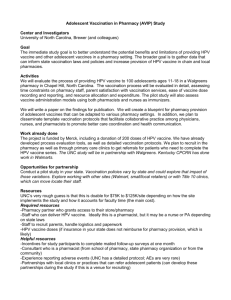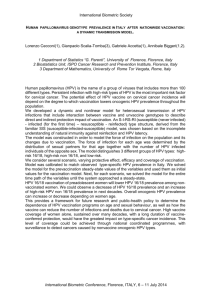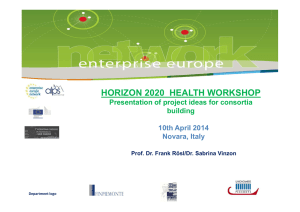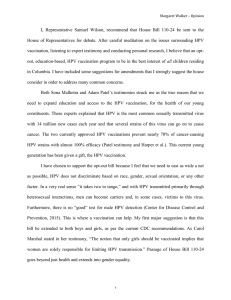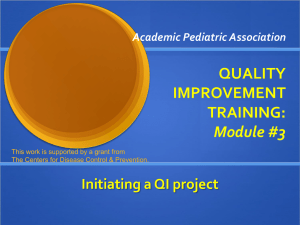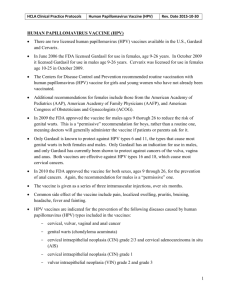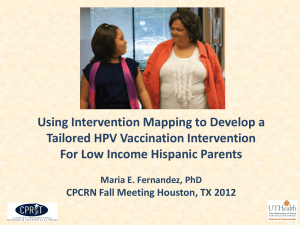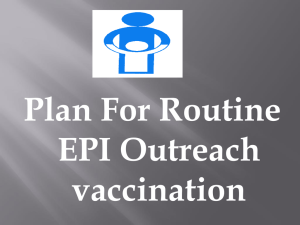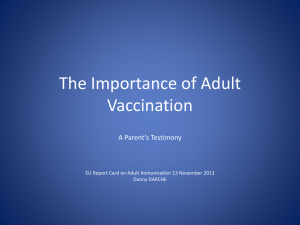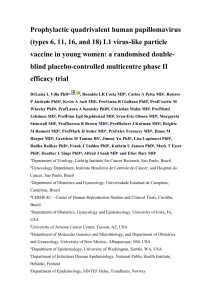Denis Kozlov, “The Readers of Novyi Mir, 1948
advertisement
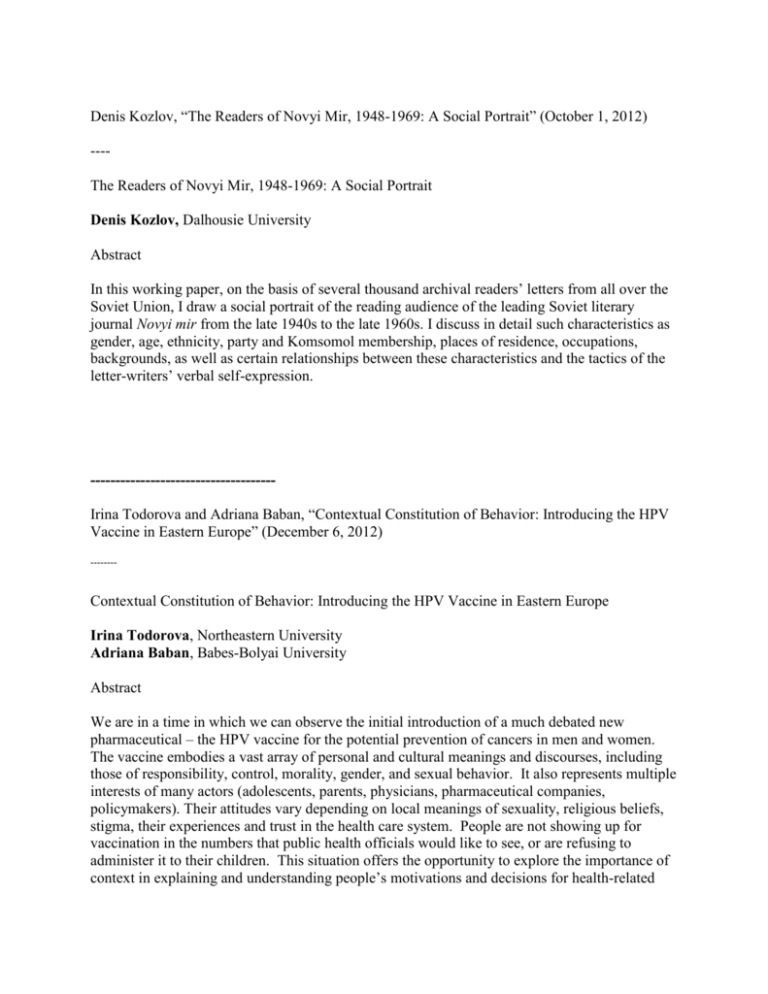
Denis Kozlov, “The Readers of Novyi Mir, 1948-1969: A Social Portrait” (October 1, 2012) ---The Readers of Novyi Mir, 1948-1969: A Social Portrait Denis Kozlov, Dalhousie University Abstract In this working paper, on the basis of several thousand archival readers’ letters from all over the Soviet Union, I draw a social portrait of the reading audience of the leading Soviet literary journal Novyi mir from the late 1940s to the late 1960s. I discuss in detail such characteristics as gender, age, ethnicity, party and Komsomol membership, places of residence, occupations, backgrounds, as well as certain relationships between these characteristics and the tactics of the letter-writers’ verbal self-expression. ------------------------------------Irina Todorova and Adriana Baban, “Contextual Constitution of Behavior: Introducing the HPV Vaccine in Eastern Europe” (December 6, 2012) -------- Contextual Constitution of Behavior: Introducing the HPV Vaccine in Eastern Europe Irina Todorova, Northeastern University Adriana Baban, Babes-Bolyai University Abstract We are in a time in which we can observe the initial introduction of a much debated new pharmaceutical – the HPV vaccine for the potential prevention of cancers in men and women. The vaccine embodies a vast array of personal and cultural meanings and discourses, including those of responsibility, control, morality, gender, and sexual behavior. It also represents multiple interests of many actors (adolescents, parents, physicians, pharmaceutical companies, policymakers). Their attitudes vary depending on local meanings of sexuality, religious beliefs, stigma, their experiences and trust in the health care system. People are not showing up for vaccination in the numbers that public health officials would like to see, or are refusing to administer it to their children. This situation offers the opportunity to explore the importance of context in explaining and understanding people’s motivations and decisions for health-related behaviors and particularly - vaccination. Health behaviors are understandable or “acquire meaning and significance on the basis of their relationship to the broader social practices”. In this sense, people’s decisions regarding health protective behaviors might not conform to rationalistic understandings, or might seem “irrational” or ‘misinformed’, yet make sense when considering the situations which are constitutive of them and the symbolic meanings which they embody. In this paper we will discuss the contextual aspects of attitudes and behaviors of prevention, disparities in access and implications for prevention, particularly through vaccination with the HPV vaccine. We will address the relevance of history, healthcare policy and gendered attitudes in Eastern Europe, for the constitution of preventive attitudes and behaviors. ---------------------------------Todorova2 Elitsa Dimitrova, Yulia Panayotova, Anna Alexandrova-Karamanova, and Irina Todorova, “Doctors’ and Parents’ Perspectives on Communication Regarding HPV Vaccination in Bulgaria” (December 6, 2012) ----Doctors’ and Parents’ Perspectives on Communication Regarding HPV Vaccination in Bulgaria Elitsa Dimitrova, Bulgarian Academy of Sciences Yulia Panayotova, Health Psychology Research Center Anna Alexandrova-Karamanova, Health Psychology Research Center Irina Todorova, Northeastern University Abstract Decisions for HPV vaccination depends on the effective dialog between provider and patient, as well as on social network and family support. In Bulgaria, a country without an organized program for cervical screening and vaccination, the topic of HPV vaccination has recently been receiving increased public recognition and local meanings of vaccination are emerging.


